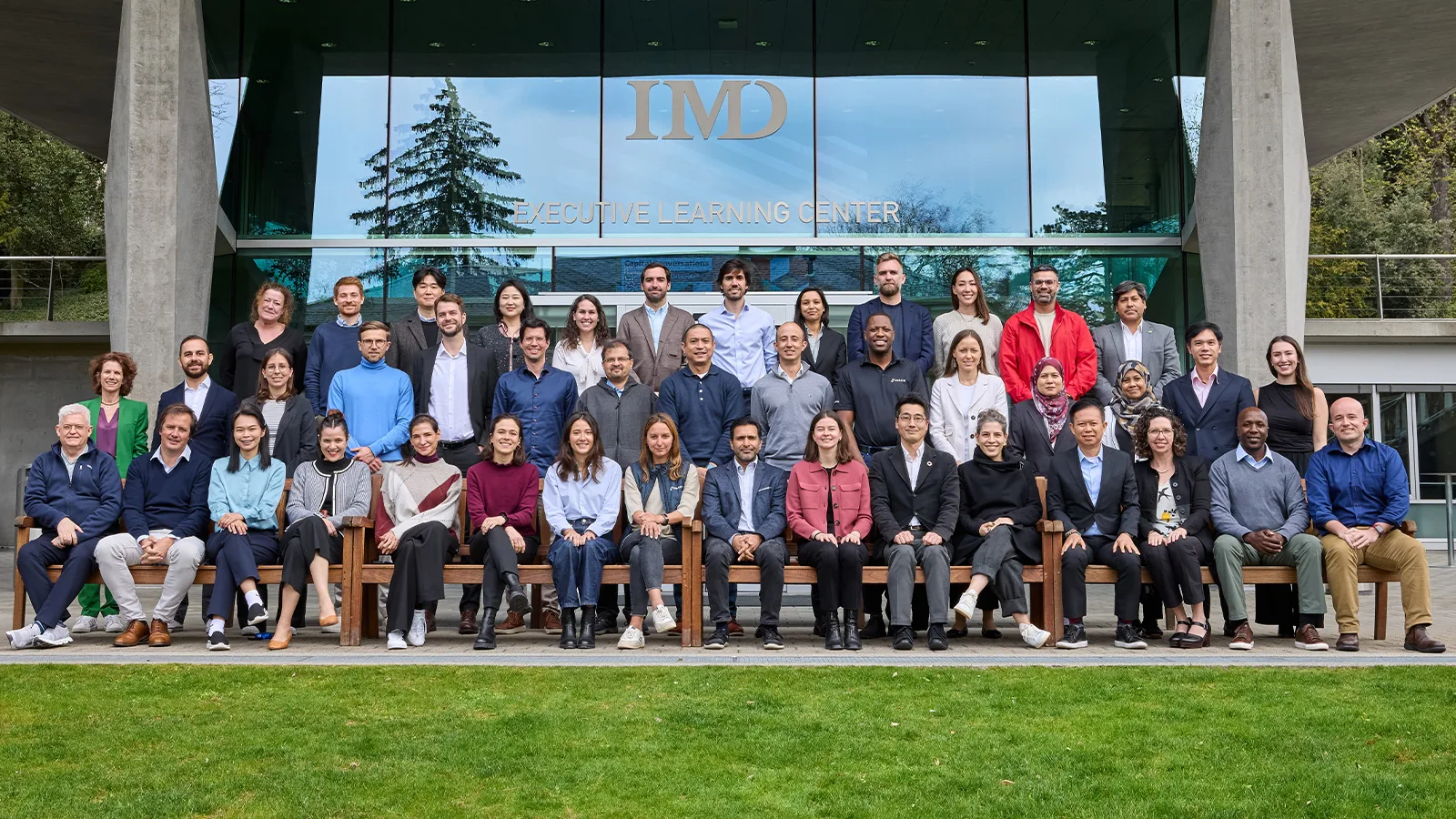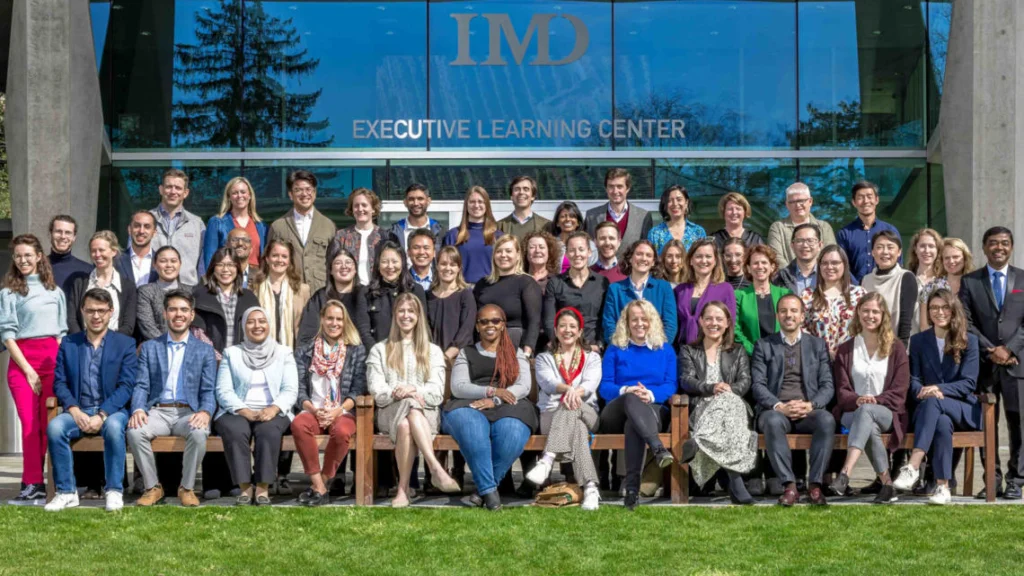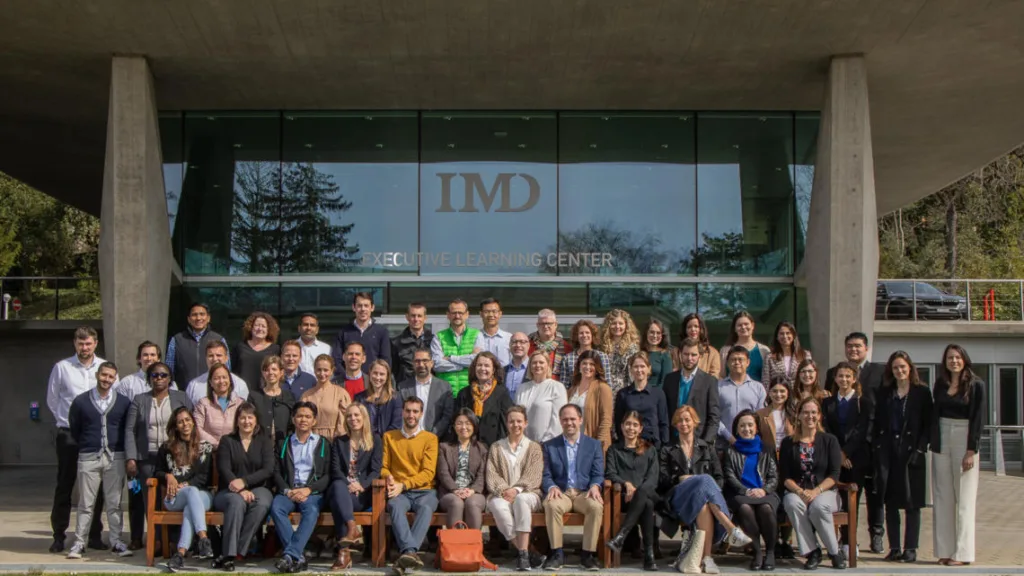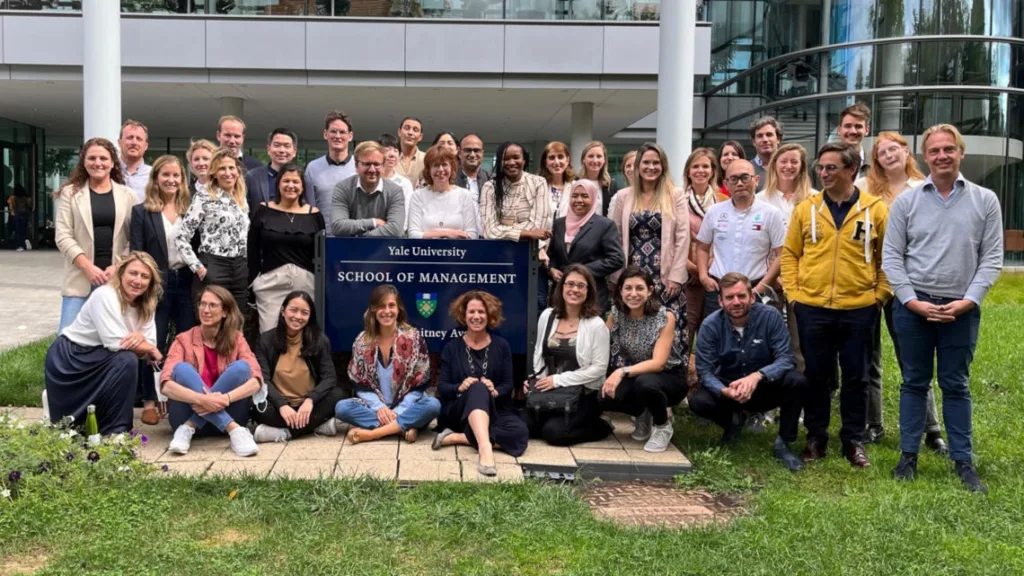Authors
Elise Beuvens, Sustainable Operations Enabler, Roche
Do not wait for extraordinary circumstances to do good action; try to use ordinary situations.
– Jean-Paul Richter
I was eager to join the 2025 WBCSD Leadership Program, which is designed to develop future leaders capable of integrating sustainability challenges and opportunities into core business strategies. This first module was held at IMD Business School in Lausanne, where I joined 40 peers from diverse industries.
Through a blend of thought-provoking lectures and dynamic discussions, the program challenged me both personally and intellectually, encouraging me to reconsider my existing knowledge and embrace new perspectives. I found the conversations with fellow participants particularly valuable, and gained key insights from these interactions:
- Self-awareness is the cornerstone of change: Self-reflection and personal growth are essential for effective leadership and meaningful change. Understanding our biases, strengths, and weaknesses fosters empathy and emotional intelligence, which are crucial for inspiring and leading others. This process was initiated through an HBDI (Herrmann Brain Dominance Instrument) self-assessment.
- Continuous learning is non-negotiable in the realm of sustainability: The field of sustainability is in a state of constant flux, with new research, technologies, and challenges emerging at a rapid pace. To stay ahead of the curve, sustainability professionals must cultivate a mindset of perpetual curiosity, constantly seeking out new information, challenging their own assumptions, and actively collaborating with experts from diverse fields.
- Empathy, optimism, and courage are the driving forces of action: Effective leaders in the sustainability space are not simply knowledgeable; they are also compassionate, hopeful, and bold. Empathy enables them to connect with people on a deeper level, understanding their needs and motivations. Optimism empowers them to paint a compelling vision of a sustainable future, inspiring others to join the cause. And courage allows them to take decisive action, even in the face of uncertainty and opposition. To achieve this, we all became acquainted with the Inner Development Goals (IDGs), which complement the Sustainable Development Goals (SDGs) until 2030.
- Transformation requires strategic thinking and coalition building: To achieve meaningful transformation, leaders must be adept at navigating the complexities of the nonmarket environment. This involves identifying key stakeholders, building strategic alliances, and effectively framing sustainability goals in a way that resonates with diverse audiences.
- Sustainability is not just good for the planet; it’s good for business: In today’s world, sustainability is not simply a moral imperative; it’s also a business imperative. Companies that disregard the risks and opportunities linked to planetary boundaries are compromising their future. Although challenges like resistance to change and short-term thinking exist, as highlighted by André Hoffmann, adopting a new business model focused on sustainability can unlock opportunities for innovation, competitive advantage, and long-term value creation.
I can’t wait to exchange ideas at our next in-person week at Yale.




